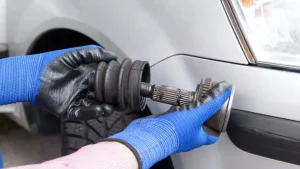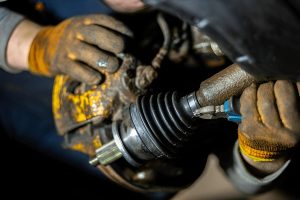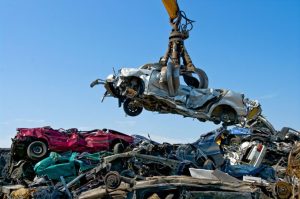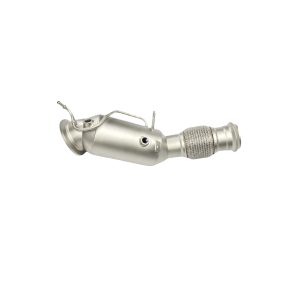Introduction
When the time comes to consider car scrap, most vehicle owners find themselves caught between sentiment and practicality. Cars are often repositories of memory and routine, yet regulations, age, and economic logic frequently demand that they be surrendered to the scrap yard. In Singapore, with its carefully regulated system of vehicle ownership, scrapping a car is not only a financial calculation but a civic act, ensuring the roads are populated with safe, efficient, and environmentally responsible vehicles.
Why Cars End up in the Scrap Yard
The decision to scrap a car is rarely impulsive. Instead, it emerges from necessity. Several factors drive this process:
· High repair costs: When repair bills surpass the value of the vehicle, scrapping becomes the logical outcome.
· COE expiration: The Certificate of Entitlement dictates the life span of most vehicles in Singapore. As it nears its end, many owners turn to scrapping.
· Environmental duty: Older vehicles emit more pollutants and scrapping them aligns with cleaner air goals.
· Lack of resale demand: Vehicles past a certain age attract little interest on the resale market.
As a frequently cited guideline explains, “De-register your car early if it no longer makes economic sense to maintain, as rebates may still be claimed.”
The Mechanics of Car Scrap in Singapore
Scrapping a car here is not a chaotic process but a measured one, governed by rules and procedures:
1. De-register the car through the Land Transport Authority (LTA).
2. Select an authorised scrapyard or exporter, as only licensed facilities can legally handle disposal.
3. Process rebates such as COE or Preferential Additional Registration Fee (PARF).
4. Receive final payment from the scrapyard for the vehicle’s body and materials.
This structured order ensures fairness, transparency, and compliance for all parties.
Understanding Rebates in Car Scrap
The rebates form the backbone of the value calculation:
· COE Rebate: Owners who de-register before their COE expires receive a prorated rebate, a considerable financial recovery.
· PARF Rebate: For vehicles under ten years old, this rebate is based on the Open Market Value of the car.
Failing to understand or claim these rebates is akin to surrendering wealth unnecessarily. Even older cars with no PARF eligibility may still yield meaningful COE refunds if deregistered before expiry.
How Scrap Value is Determined
Beyond rebates, the value of a scrap car rests upon material and condition:
· Metal value: Steel and aluminium prices vary, affecting payout.
· Reusable parts: Items like tyres, batteries, or entertainment systems may fetch additional sums.
· Export potential: Certain makes and models hold value in overseas markets, where demand differs.
A common observation within Singapore notes, “Scrap value depends not only on age and mileage but also on how much demand remains for its parts.”
Maximising Returns from Car Scrap
The prudent vehicle owner does not simply surrender the car but plans for the highest gain:
· Compare offers from several scrapyards.
· Consider removing accessories and selling them separately.
· Time the de-registration to capture full rebate value.
· Understand whether export or local scrapping yields better returns for your car model.
In this, scrapping becomes not resignation but a deliberate strategy. For some, it is a chance to fund their next car purchase, while for others it offers a modest yet valuable return at the end of ownership.
Misconceptions Surrounding Car Scrap
Much confusion clouds the process:
· “Scrapping means you get nothing back.” This is false; rebates and scrap payouts can be substantial.
· “Any scrapyard will do.” Only LTA-authorised facilities guarantee lawful processing.
· “Export is identical to scrapping.” In reality, export is a separate pathway that may offer higher returns in specific cases.
Clearing away these myths empowers owners to act wisely rather than in haste.
The Wider Impact of Scrapping
Car scrap is not merely a private act but part of a collective system:
· Environmental preservation: Recycled metals and plastics re-enter production cycles.
· Public health: Removal of high-emission cars improves air quality.
· Urban efficiency: A regulated turnover of vehicles ensures Singapore’s roads are not clogged with outdated, unsafe cars.
By participating in the process responsibly, owners contribute to a broader civic good. Singapore’s system is designed not just to regulate ownership but to maintain a sustainable, orderly environment.
Practical Tips Before Scrapping a Car
Preparation ensures the process is smooth and trouble free:
· Remove all personal belongings and documents.
· Cancel insurance upon de-registration.
· Photograph the vehicle for personal records.
· Confirm receipt of official de-registration and rebate documentation.
Such diligence prevents disputes and preserves peace of mind. Some owners also seek advice from seasoned motorists who have gone through the process, learning valuable insights that ease uncertainty.
Conclusion
The end of a vehicle’s life need not be seen as mere disposal but as the final step in a carefully constructed system of ownership. Scrapping a car allows owners to recover value, protect the environment, and align with Singapore’s regulatory framework. With knowledge of rebates, attention to timing, and careful choice of scrapyard, the process becomes less about loss and more about prudence. Ultimately, when approached wisely, car scrap represents not just an ending but also a responsible conclusion to the story of ownership.






More Stories
Improper Installation: Avoiding Post-Repair CV Joint Complications
Unusual Resistance: Feeling Binding in Your Vehicle’s Drive
Unlocking Performance: The BMW G20 / G21 330i / 330e Downpipe Upgrade